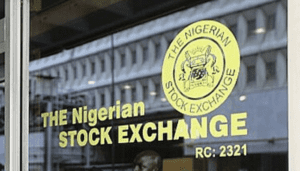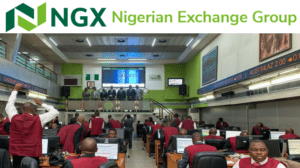
2022: Union Bank declares 47% growth in PBT to N30.2bn
By Philemon Adedeji
Union Bank of Nigeria Plc has released its audited financial statements for the year ended 31st December 2022, revealing strong financial performance despite macroeconomic headwinds.
The group Profit Before Tax rose marginally by 47 per cent to N30.2 billion as of end of December 31, 2022 from N20.5 billion reported in prior financial year 2021, while Profit After Tax increased impressively from 19.2 billion in corresponding year 2021 to N29 billion in full year 2022.
Gross earnings went up 19 per cent to N208.2 billion in 12 months of 2022 from N175.0 billion posted in 12 months of 2021, driven by strong growth in Net Interest Income.
According to the bank in a statement, Net Interest Income rose by 33 per cent to N59.1 billion from N44.3 billion in 2021 driven by growth in earning assets while Net Operating Income after impairments was up 10 per cent to N110 billion from N99.7 billion in 2021.
This is on the back of increasing inflation which the economy continues to struggle with. The headline inflation rate rose to 22.04 per cent in March, a 0.13 per cent increase from the 21.91 per cent rate recorded in February, according to the latest report published by the Nigerian Bureau of Statistics (NBS) recently.
The report said the increase was buoyed by the jump in prices of food, housing, fuel and gas, among others. The figure shows a consistent increase in the inflation rate for the last two years.
Net Interest Income rose by 33 per cent to N59.1 billion from N44.3 billion in 2021, as Net Operating Income after impairments up by 10 per cent to N110 billion in full year 2022 from N99.7 billion in full year 2021, while Operating Expenses marginally grew by 0.4 per cent to N79.4 billion from N79.2 billion in 2021.
On a year-on-year basis, the headline inflation rate was 6.13 per cent points higher compared to the rate recorded in March 2022 which was 15.92 per cent.
Union Bank noted that Operating Expenses marginally grew by 0.4 per cent to N79.4 billion from N79.2 billion in 2021, reflecting tight cost control despite inflationary pressures.
Commenting on the results, MD/CEO, Mudassir Amray, said that despite the macroeconomic headwinds of 2022, the bank recorded strong performance across key financial and operational indicators.
“We were focused on our strategy of deepening our core business segments whilst enhancing our digital channels and service propositions to customers. On the back of this, we are increasing our customer acquisition and engagement, translating into higher revenues across our regions. The Bank’s gross earnings grew by 19 per cent to N208.1 billion from N175 billion in 2021.
“Whilst non-interest income declined marginally by 1.0 per cent. Net interest income after impairment grew 26.1 per cent to N55.8 billion from N44.2 billion in 2021 on the back of increasing responsible risk assets. Profit before tax closed at N30.2 billion, representing a growth of 47.1 per cent from N20.5 billion recorded in 2021.
“In 2023, we will remain focused on executing our strategic initiatives, which are centred on pursuing additional opportunities to diversify our revenue sources while strengthening our core business. We also look forward to completing the merger of Union Bank of Nigeria and Titan Trust Bank, which began in 2022.
“The transition has gone smoothly, and I am confident that the combination will make us more formidable and well-positioned to capitalise on market opportunities.
“As we progress into 2023, I have no doubts that we will scale through all the macroeconomic pressures and sustain this growth momentum with continued support from the new core investors and board and continued trust from our customers to serve them,” Amray noted.
Also speaking on the FY 2022 numbers, Chief Financial Officer Joe Mbulu said the financial performance is a testament to the disciplined execution of the bank’s plans for the year and resilience against all odds.
He said, “While pursuing liability generation and responsible risk assets, we maintained operational efficiency, managing cost drivers and avoiding wastage. Operating expenses increased marginally by 0.43 per cent due to increased non-discretionary regulatory costs. Our cost-to-income ratio dropped to 72.5 per cent from 79.4 per cent in 2021 due to cost-control measures implemented during the year.
“The Bank’s balance sheet remains strong, with total assets increasing by 8.8 per cent to N2.79 trillion due to growing loans and advances to customers. We expanded our net loan book by 11.5 per cent from N868.8 billion in 2021 to N968.9 billion in 2022. In addition, customer deposits increased by 8.8 per cent to N 1.48 trillion.
“While we seek to grow our risk assets, maintaining quality assets remains a key priority. As a result, our NPL ratio reduced from 4.3 per cent to 4.0 per cent, and the capital adequacy ratio remained within regulatory limits at 14.4 per cent.”



